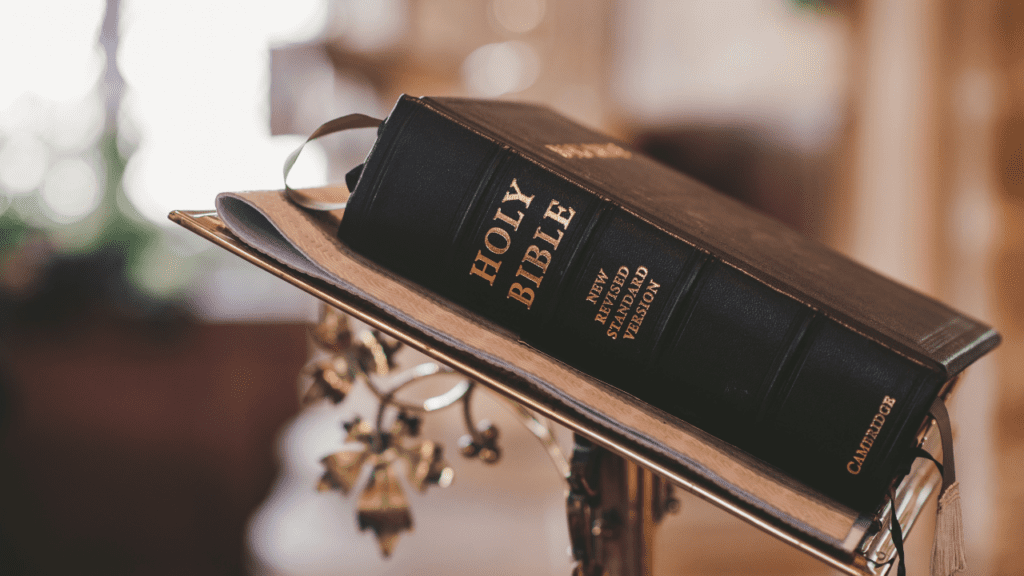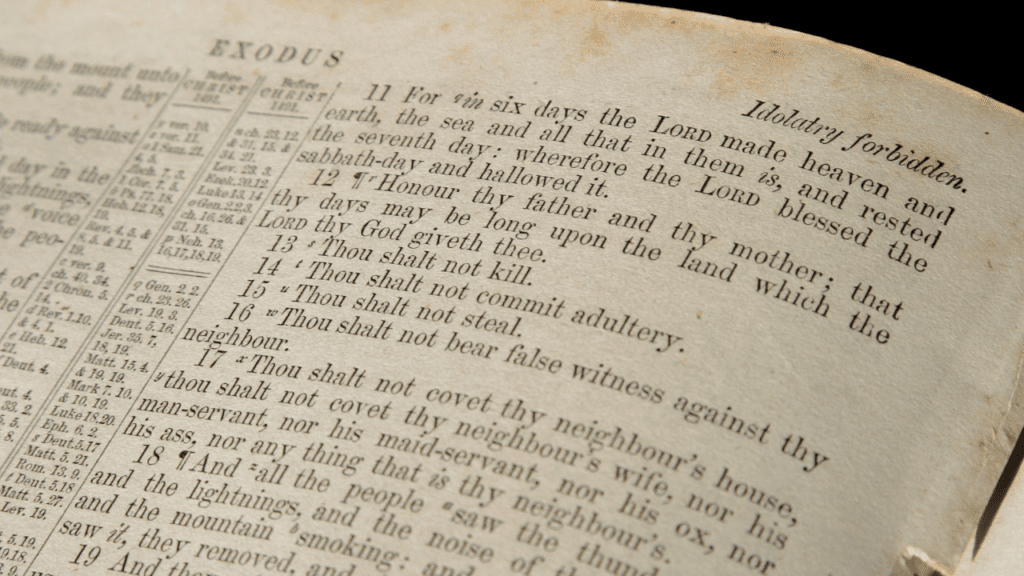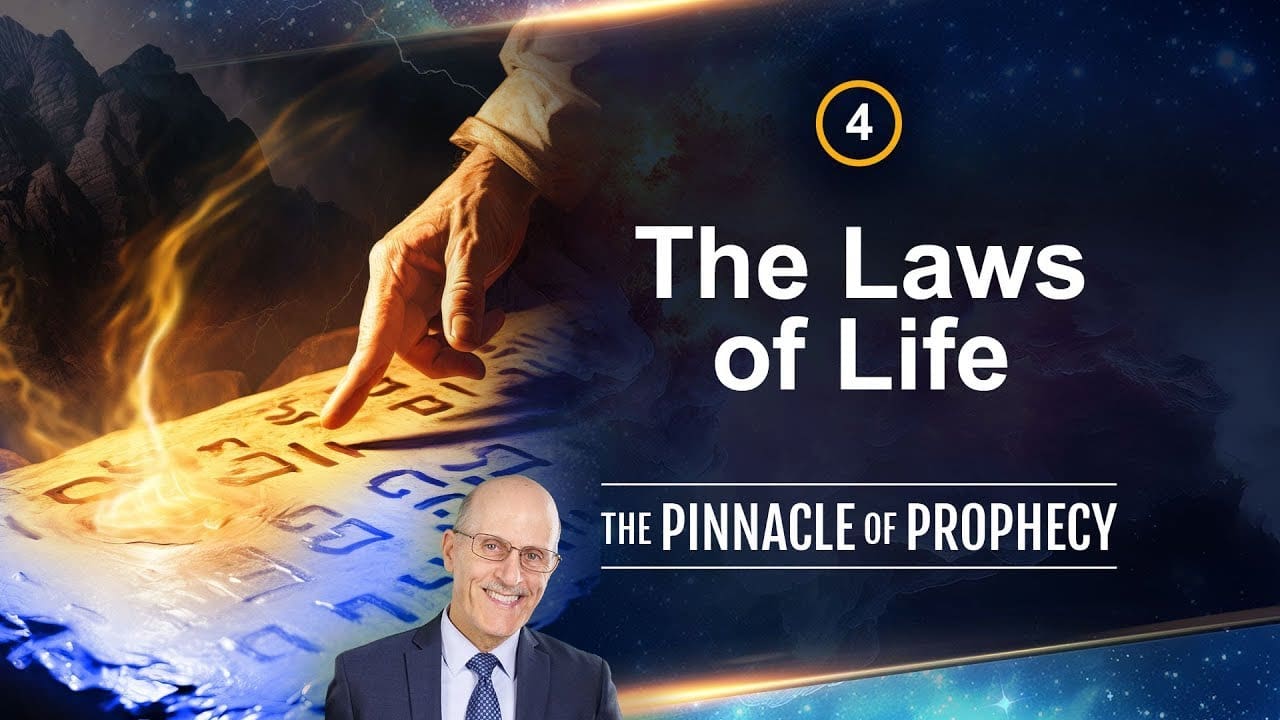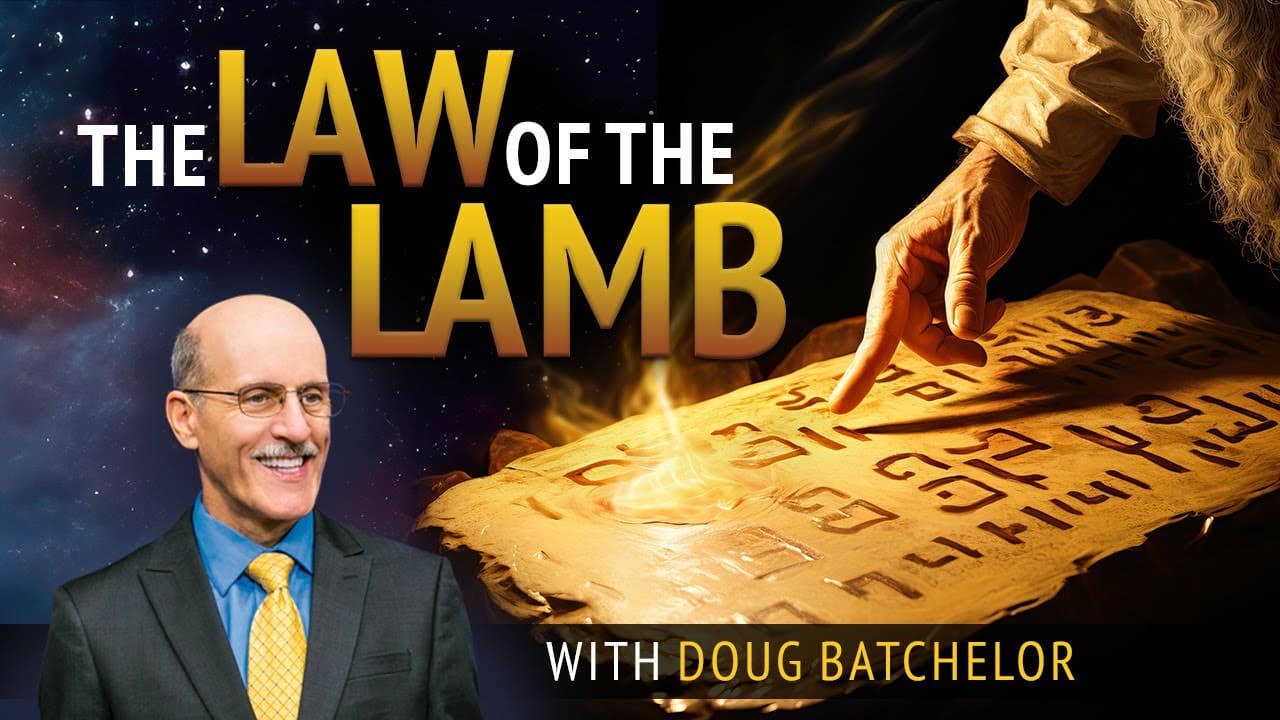In the late 1960s, a prominent figure in the Civil Rights movement made a controversial statement that “one has a moral responsibility to disobey unjust laws.” Interestingly, this statement received praise from church leaders and garnered positive attention in the American press. Soon after, a high-ranking legal advocate in the United States judiciary expressed a similar sentiment. However, we must consider the consequences of such senseless anarchy. Can we selectively choose to obey only the laws we like? Do we adopt the same attitude towards God’s laws? Regrettably, many individuals do.
Several decades ago, it was commonly believed that obedience to God was necessary for salvation. However, in today’s world, religious individuals often deny that obedience is a requirement for salvation. So, which of these doctrines is true?
It is important to note that only a legalistic perspective would suggest that we can earn God’s favour and forgiveness through our own actions. Such a belief would make us our own saviours. Conversely, if we claim that we are free to disregard God’s commandments, our lives will not reflect any improvement from before we became Christians. Sinners would find no reason to embrace a way of life that does not surpass their own. Furthermore, Jesus never set an example of disobedience. So, what should we do? Our good behaviour cannot save us, and we do not desire to live in deliberate transgression.
Salvation begins from where we currently stand—in sin. It would be futile to offer our own deeds as atonement for our past lives. We are often tempted to improve our standing with God by promising to “do better next time.” However, we cannot offset yesterday’s guilt by performing an equal amount of good today. That would be self-justification—a human response that rejects the blood of Christ as the sole means of grace. Paul condemns this approach, stating, “Christ is become of no effect unto you, whosoever of you are justified by the law; ye are fallen from grace” (Galatians 5:4).
Obedience motivated by such a mindset is an erroneous approach to God. He cannot accept it. Those who recognize this truth are quick to quote the words of the apostle: “Therefore by the deeds of the law there shall no flesh be justified in his sight: for by the law is the knowledge of sin” (Romans 3:20). Paul believed that a good law does not justify a wicked person; that is not its purpose.
Does Paul imply that since we cannot earn forgiveness through our actions, we are free to do as we please? Although no one is saved by obedience alone, one cannot be saved without it. Obedience serves as evidence of the quality of our saving faith. While we are not saved by virtue of keeping the commandments, we can certainly be eternally lost by wilfully breaking them. “For if we sin wilfully after that we have received the knowledge of the truth, there remaineth no more sacrifice for sins, but a certain fearful looking for of judgment and fiery indignation” (Hebrews 10:26, 27).
From the very beginning, Lucifer accused God of being unfair and arbitrary in requiring obedience to His commands. Lucifer essentially argued that creatures cannot be happy when restricted by arbitrary laws, claiming that their ways are as valid as God’s. He has continued to make the same accusation, often effectively, even from some pulpits today. Yet, despite what men may say, the Bible states, “For this is the love of God, that we keep his commandments: and his commandments are not grievous” (1 John 5:3).
The keeping of God’s commandments will be the central issue in the final struggle. The ultimate battle will be waged over a people “who keep the commandments of God” (Revelation 12:17). Regardless of what others may say, and despite Satan’s efforts to blind the eyes of men and women concerning the observance of God’s commandments, the Bible declares that those who keep His commandments are identified as the saints: “Here is the patience of the saints: here are they that keep the commandments of God, and the faith of Jesus” (Revelation 14:12).
The saints are God’s people. God claims them as His own, stating that they keep His commandments and hold to the faith of Jesus. According to my understanding of the Bible, it will indeed require the “faith of Jesus” to uphold the commandments during the final stages of the conflict. It does not take much imagination, especially after hearing bitter indictment against the Ten Commandments and those who earnestly strive to keep them.
My friend, will you deny that God’s commandments must be obeyed when God Himself declares, “Here are My saints who keep them”? Can you reject the vital role of commandment-keeping in God’s plan? In the last chapter of the Bible, God leaves us with a parting message: “Blessed are they that do his commandments, that they may have right to the tree of life and may enter in through the gates into the city” (Revelation 22:14). If God affirms that keeping the commandments grants us access to the tree of life and entry into the heavenly city, can we deny this truth and accuse God of foolishness?
If God has made such a declaration, then it is certain that only by keeping His commandments do we have the right to partake in the blessings of the tree of life and enter through the gates into the city.
Bear this in mind: in God’s plan of salvation, we are saved solely by His grace, and salvation is freely available to all who seek it. No actions of our own can purchase salvation—it is a gift from God, received through faith. The Bible clearly teaches this. Nevertheless, the devil has muddled the issue, and his teachers downplay the free salvation offered through Christ, reducing it to a hollow and worthless concept. When a person is saved by the free gift of God’s grace, they are saved from sin. They are saved from the guilt, power, and penalty of sin. But what is sin? According to the Bible, sin is “the transgression of the law” (1 John 3:4). And which law is this? It is the Ten Commandments, as clearly stated in Romans 3:20, Romans 7:7, and James 2:10-12. Sin is the violation of the commandments, including “You shall not covet,” “You shall not kill,” and “You shall not commit adultery.” Therefore, transgressing the precepts of the Ten Commandments is sin.
The free salvation we find in Jesus Christ delivers us, first and foremost, from the guilt of past sins. Second, it frees us from the power of sin, enabling us to no longer live in transgression or disobedience. This means that God’s free salvation, by His grace, provides not only forgiveness but also the power and willingness to obey and keep His commandments. Third, God’s free salvation through grace cancels the penalty of our sins, as Christ paid that penalty on the cross. Do not, even for a moment, believe that a free salvation does not require and enable obedience to God’s commandments. God’s free salvation by grace is not simply a loud and boastful profession. Christ anticipated the schemes of the enemy and knew that his servants would clothe themselves in the garments of righteousness. Hence, He declared, “Think not that I am come to destroy the law, or the prophets: I am not come to destroy, but to fulfill” (Matthew 5:17). The next two verses leave no room for ambiguity: “For verily I say unto you, Till heaven and earth pass, one jot or one tittle shall in no wise pass from the law, till all be fulfilled. Whosoever therefore shall break one of these least commandments, and shall teach men so, he shall be called the least in the kingdom of heaven: but whosoever shall do and teach them, the same shall be called great in the kingdom of heaven” (Matthew 5:18-19). Additionally, Luke 16:17 affirms, “And it is easier for heaven and earth to pass, than one tittle of the law to fail.” Given that heaven and earth have not passed away, we should adhere to Jesus’ statement that the law of the Ten Commandments remains unchanged.
Friends, in light of these Scriptures, it is crucial to examine ourselves before God. Our attitude towards the law and our obedience to it (not as a means of salvation but as a result) will determine how God measures us. Those who deny the power of the gospel to empower individuals to keep God’s commandments after salvation undermine the adequacy of Jesus Christ and contradict the fundamentals of the gospel.
Undoubtedly, Satan has succeeded in confusing the thoughts of mankind on this matter. It is his aim. He enlists as many people as he can in his campaign against the law—individuals, including ministers, who appear as ministers of righteousness. Yet, the Bible states, “To the law and to the testimony: if they speak not according to this word, it is because there is no light in them” (Isaiah 8:20). The final conflict revolves around the keep God’s commandments and those who keep and teach them. Those who uphold and teach God’s commandments are on God’s side in the age-old struggle, while those who knowingly break the commandments and encourage others not to keep them are agents of the kingdom of darkness, aligned with Satan, regardless of their religious profession.
Friend, whose side do you stand on? If you have not yet decided, I urge you to do so today. Stand on God’s side, and victory over sin and its consequences will be yours.













